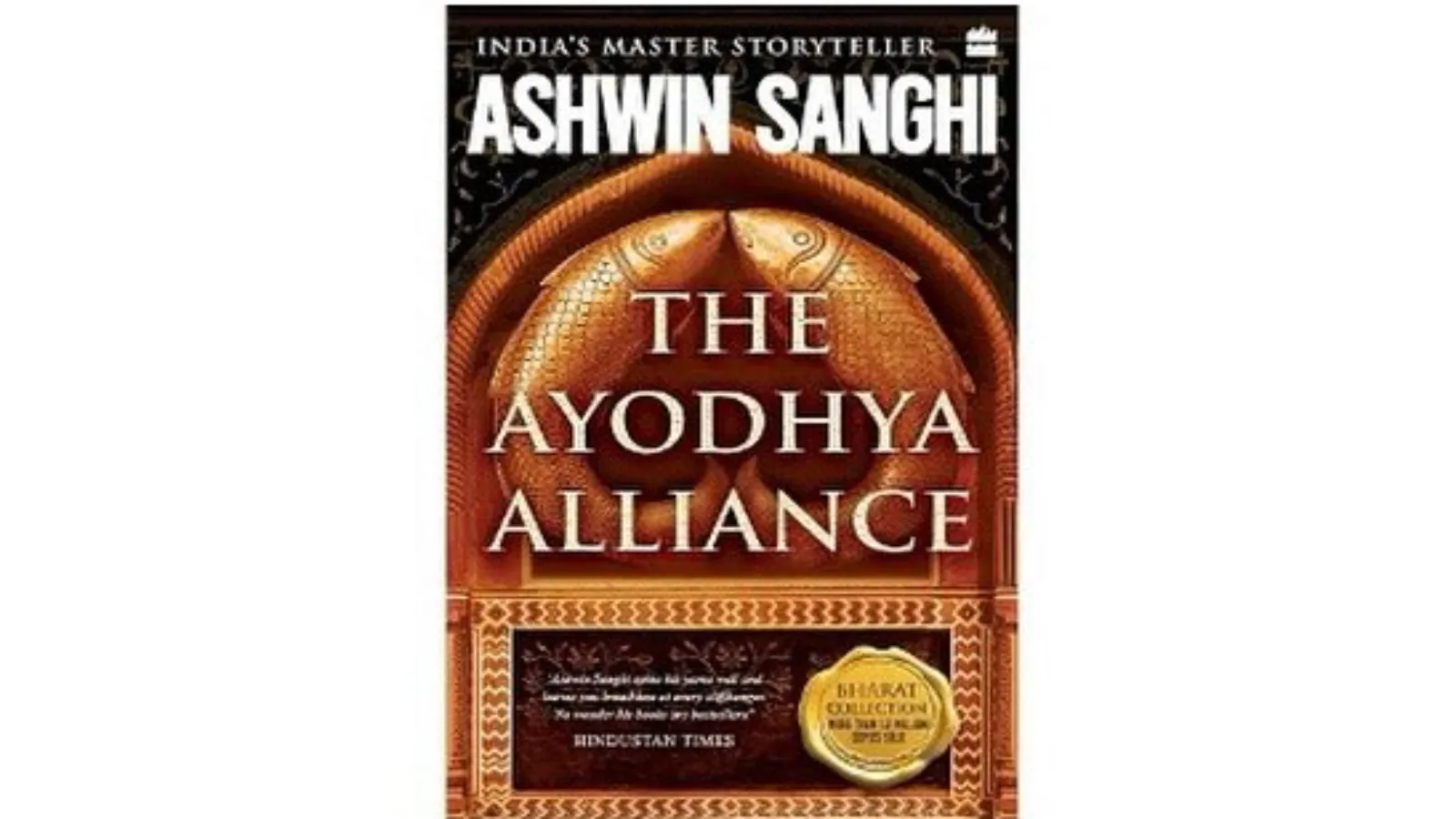By Ashwin Sanghi News18
Ashwin Sanghi returns with The Ayodhya Alliance, a bold, globe-trotting thriller that fuses mythology, science, and geopolitics into an electrifying narrative. With his signature blend of fact and fiction, Sanghi delves deep into the rich tapestry of Indian epics, ancient civilisations, and contemporary power struggles, delivering a novel that is as intellectually engaging as it is relentlessly suspenseful.
At the heart of the story lies a long-buried enigma — a mysterious scientific force once whispered by Ravana to Lakshman on the blood-soaked battlefield of Lanka. This isn’t just any ancient secret, but a revelation with the potential to alter the trajectory of human history. For thousands of years, this secret remained hidden, protected by guardians bound by a sacred oath. Now, in the 21st century, as India’s borders simmer with tension and a crucial defence technology begins to falter, the past resurfaces with explosive urgency.
‘The Ayodhya Alliance’ by Ashwin Sanghi
Enter Aditya Pillai, a high-stakes industrialist with a deep investment in India’s defence projects, and Somi Kim, a brilliant South Korean technocrat. The pairing is unusual but compelling. Their mission begins as a modern technological crisis but soon morphs into an Indiana Jones-esque quest that spans continents and millennia. Together, they uncover a trail that stretches from Ayodhya to Kailasa, from the Pandyan Empire to Rome, Damascus, Thailand, and Korea. The sheer breadth of the historical canvas is staggering.
Sanghi’s greatest strength lies in his ability to craft plausible connections between mythology and science, between the spiritual and the strategic. In The Ayodhya Alliance, he masterfully blurs the lines between historical fact and speculative fiction. As the protagonists follow cryptic clues and decode ancient texts, readers are treated to a whirlwind tour of lost knowledge, suppressed technologies, and forgotten alliances. But it’s not just the treasure hunt that keeps the pages turning. The novel also probes deeper questions: What happens when science is indistinguishable from magic? Who controls the narrative of history? And what is the cost of ultimate power?
The pacing is brisk, with Sanghi deftly alternating between historical flashbacks and high-octane contemporary scenes. The transitions are smooth, ensuring that the reader is never disoriented despite the temporal leaps. He builds suspense incrementally, never overwhelming the reader with exposition, yet feeding just enough information to keep the mystery alive.
Characters are well-drawn and multidimensional. Aditya Pillai is more than a corporate magnate; he is a man caught between his duty to his nation and his moral compass. Somi Kim brings an international flavour to the narrative and functions as both a cultural counterbalance and an intellectual equal. Their dynamic evolves gradually, underscoring themes of trust, collaboration, and shared heritage. Supporting characters — some descendants of ancient orders, others shadowy figures from intelligence agencies — add texture and complexity to the story.
Thematically, The Ayodhya Alliance operates on multiple levels. It is, on the surface, an action-packed thriller. But at its core, it is a meditation on civilisational continuity, the erosion of knowledge, and the consequences of playing god with lost technologies. The myth of Ravana’s whispered secret is not just a plot device; it is a symbol of how power, once divorced from ethics, can become a global threat.
Sanghi’s prose is crisp and cinematic, well-suited for the screen adaptation this book practically demands. There are moments where the exposition — especially the historical segments — verges on dense, but for readers familiar with Sanghi’s work, this is part of the intellectual pleasure. His research is meticulous, and he continues his tradition of endnotes and references for the curious reader who wants to dive deeper into the history beneath the fiction.
Where The Krishna Key and Chanakya’s Chant explored theology and political philosophy, The Ayodhya Alliance ventures further into the speculative realm, almost bordering on science fiction. Yet, it remains grounded in the Indian ethos, reminding readers that ancient India was not only spiritual but scientific in its orientation — a land where technology and mysticism coexisted.
In an era where India’s role in the global order is rapidly evolving, The Ayodhya Alliance resonates as more than just a thriller. It is a story about civilisational agency, about reclaiming lost narratives, and about rising powers reasserting their intellectual and spiritual legacy on the world stage. At a time when popular fiction is saturated with Western myths and tropes, Sanghi’s effort to root an international thriller in Indic history is both refreshing and politically significant.
The Ayodhya Alliance is vintage Ashwin Sanghi — fast-paced, richly layered, and thought-provoking. It invites readers to rethink the boundaries between myth and reality, and between past and future. This novel offers a thrilling, immersive ride with a distinctly Indian heartbeat.
The writer is a technocrat, political analyst, and author. He pens national, geopolitical, and social issues. His social media handle is @prosenjitnth. Views expressed in the above piece are personal and solely those of the author. They do not necessarily reflect News18’s views.
